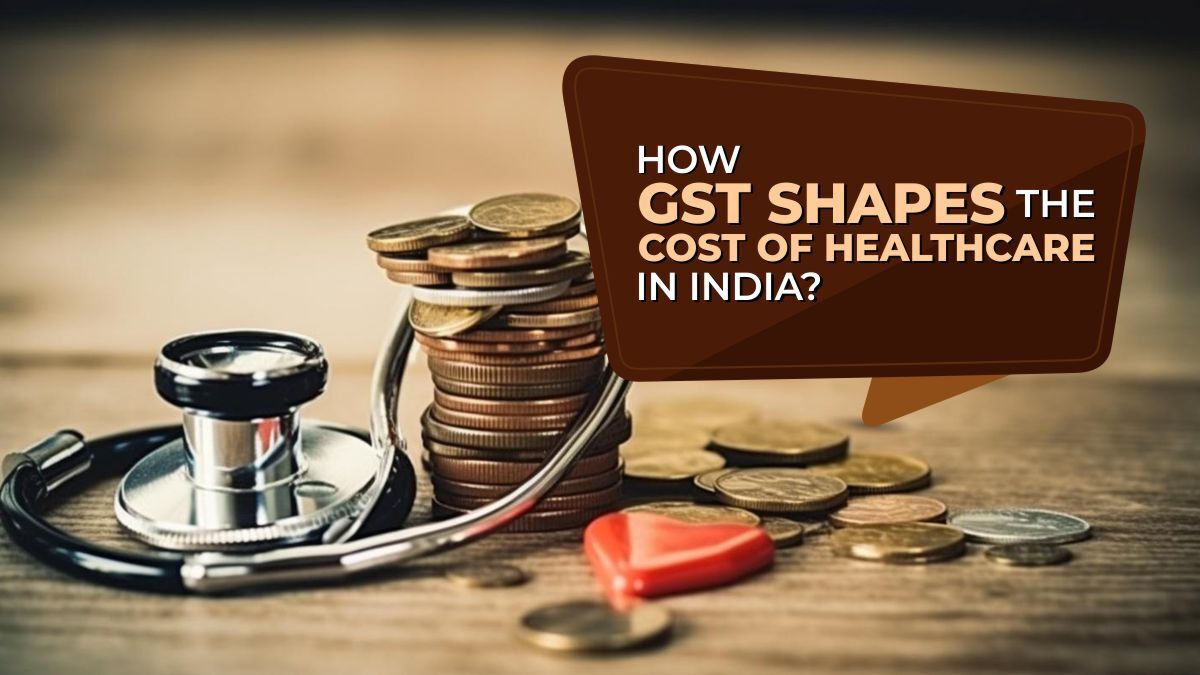
In India, the healthcare landscape is evolving rapidly. With the increasing demand for medical services and the challenges faced by the healthcare system, private institutions play a crucial role in meeting the needs of the population. This has transformed healthcare into a significant industry, where seeking treatment is not only a matter of personal choice but also of financial means.
Since July 2022, hospitals have been brought under the ambit of the Goods and Services Tax (GST) taxation system. While this move aims to streamline taxation, it has also raised questions and concerns, especially among patients, regarding the application of GST on healthcare services.
Understanding the nuances of GST in the healthcare sector is crucial for patients to avoid unexpected financial burdens. Let’s delve deeper into what falls within the purview of GST and which healthcare services are exempt.
Exempt Healthcare Services under GST:
- Clinical Establishments and Authorized Medical Practitioners: Healthcare services provided by clinical establishments, authorized medical practitioners, or paramedics are exempt from GST. This includes medical consultations, treatments, and medical tests conducted within clinical establishments.
- Outpatients Department (OPD) Services: Medical consultations and treatments administered to patients in the Outpatients Department (OPD) without requiring admission to a hospital or clinical establishment are not subject to GST.
- Inpatient Services: Inpatient services, including doctors’ fees, consultancy charges, supply of medicines, implants, consumables, bed charges, operation theatre rent, and equipment charges, fall under a GST-exempt composite supply.
- Ambulance Services: Healthcare services encompassing patient transportation in an ambulance are also exempt from GST imposition.
- Veterinary Clinics: Treatment provided by veterinary clinics for animals or birds is exempted from GST.
- Blood Banks: Services provided by blood banks for preserving stem cells are exempt from GST.
It is important to mention that Hospital rooms costing above 5000 per day are taxable at the rate of 5%.
GST Rates on Medical Products:
It’s essential to note that not all medical items and supplies attract the same GST rate. Here’s a breakdown of GST rates on various medical products:
Products Subject to 5% GST: This category includes vaccines, insulin, diagnostic kits, medications, artificial limbs, orthopedic devices, coronary stents, ostomy appliances, infant milk food, and COVID-19 diagnostic test kits.
Products Subject to 12% GST: Animal blood used for therapeutic purposes, medicaments from alternative medical systems, medical and dental apparatus, blood glucose monitoring systems, and medical-grade oxygen concentrators fall under this category.
It’s crucial to highlight that pharmaceutical products or medicines are not subject to a 28% GST.
In conclusion, understanding the implications of GST on healthcare services and medical products is essential for patients in India. While GST aims to streamline taxation, patients must be vigilant about reviewing their bills during the discharge process to ensure accurate application of GST rates. By staying informed, patients can navigate healthcare costs more effectively, making informed decisions about their healthcare needs without facing undue financial burdens.
